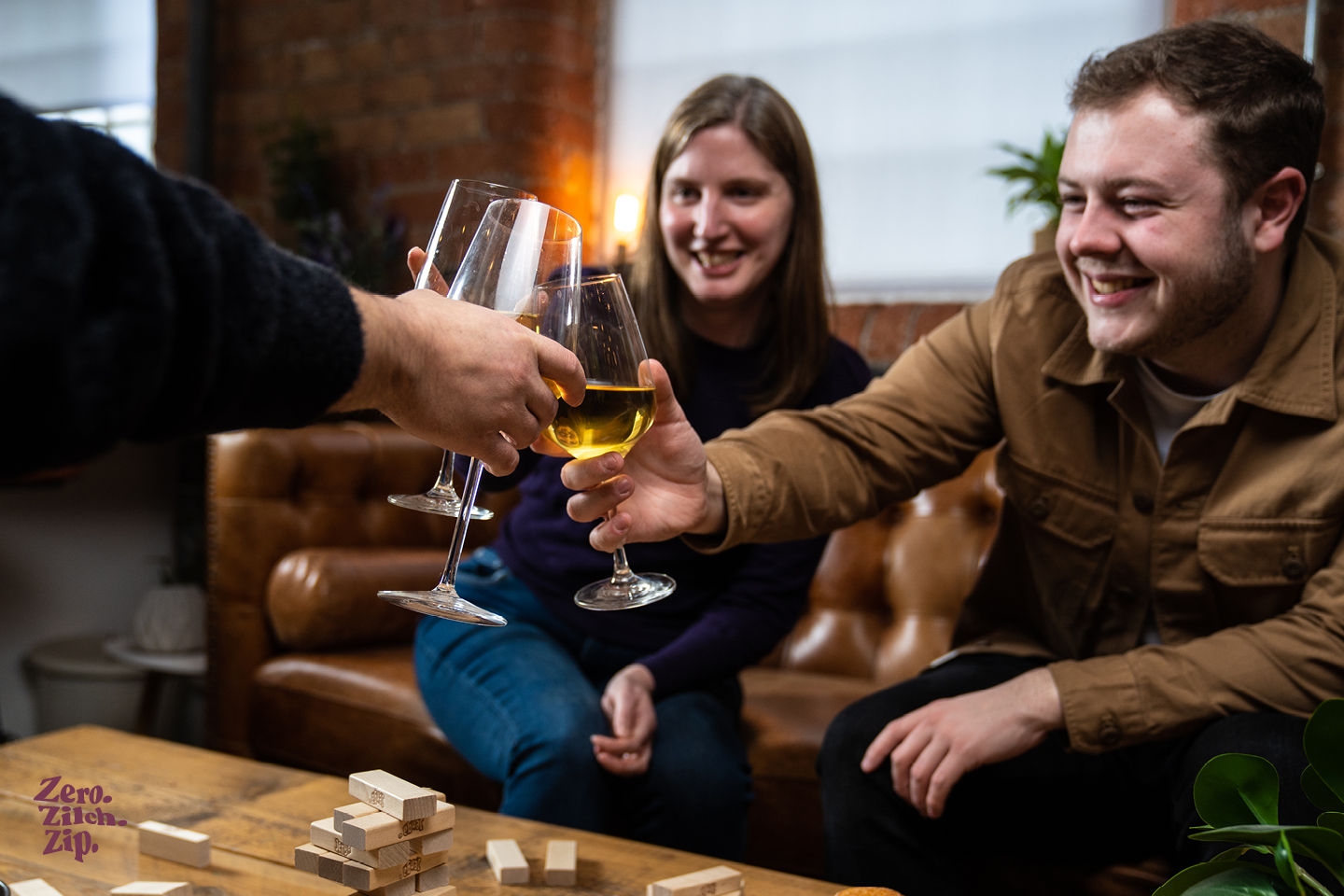ZeroZilchZip pours perfect zero-alcohol drop in the UK
When low- and no- alcohol beverage retailer ZeroZilchZip launched in 2021, artisanal Australian wines featured in its carefully curated list.
The list includes boutique South Australian wine brands such as Pure Vision and B1654, as well as Fourth Wave Wine’s contemporary brand Plus & Minus and sustainable winery Tread Softly.
It is still early days for the company. However, founder Tim Pethick is optimistic about the potential of this new market.
Alberto Oliva, Senior Business Development Manager at Austrade UK, agrees. ‘UK buyers and retailers increasingly ask us for no- and low-alcohol wine varieties. The Australia-UK Free Trade Agreement (A-UK FTA) removed import tariffs on Australian wines, making these varieties more competitive in the UK market.’
Rapid market growth makes choosing difficult
There is little doubt the no- and low-alcohol market is growing. A recent study by market analyst IWSR forecasts growth of over 8% compound annual growth rate (CAGR) across key global markets between 2021 and 2025. According to that study, the UK market is growing at over 17%.
Alcohol-free wines represent a small portion of the zero- and low-alcohol market. However, that still means hundreds of products entering the market. With limited guidance for consumers, finding one you want to drink is a challenge, as Pethick discovered first-hand.
‘It was a bit like kissing frogs,’ he laughs. ‘I was sure there had to be a better way. So I recruited some experts. After a huge comparative taste testing, we launched ZeroZilchZip with a range of curated products.’

Australian winemakers leading with a blend of art and science
Early in his search for quality no- and low-alcohol wines, Pethick began looking to artisanal winemakers from his native Australia.
‘It quickly became clear that Australian winemakers were more advanced in their approach.’
He suggests that may be in part due to the blend of technique and technology in Australian winemaking.
‘It is quite difficult to create great non-alcoholic wine,’ he explains. ‘It’s an art, and a science.’
The key is to start by making the best wine possible from the best grapes, then selecting appropriate yeasts and fermentation processes to make de-alcoholisation easier.
Winemaking technology comes back into its own
Spinning cone technology, which was pioneered in Australia for de-alcoholisation, offers another advantage. The process operates at lower temperatures and can leave the underlying structure of the wine intact.
That technology quickly found a market beyond winemaking and has come full circle as it is used to develop new varieties of no- and low-alcohol wines.
Much of the body and complexity of wine comes from the alcohol. Once that is stripped out, the art comes back into play as winemakers then need to use a careful blend of tannins, mannoproteins, grape must, or grape skin extracts to ‘rebuild’ the wine.
Free trade agreement set to help with cost challenge
Despite growing consumer interest, the market for alcohol-free wines is not without challenges.
‘Consumers are very price-sensitive,’ notes Pethick. ‘They tend to expect zero-alcohol wine to be cheaper than the alcoholic version, not realising it takes longer and costs more to produce.
‘The A-UK FTA will play an important role in helping bring costs down by removing tariffs on Australian products and reducing associated freight costs by around 10%.’
Austrade’s support essential to build awareness
‘As with any new market, education is essential,’ says Pethick.
‘Non-alcoholic wines are a different product,’ he explains. ‘Consumers need to re-educate their palates and be willing to re-learn the things they know about wine.’ This includes learning to drink zero-alcohol reds chilled and rethinking food pairings, for example.
‘Trade fairs and events can be crucial for education,’ he says. ‘When you serve non-alcoholic wines to experts in that environment, it transforms their perceptions about the art of the possible.’
However, individual producers and smaller suppliers may struggle to afford a stand at the London Wine Fair, especially as it may take time to see sales.
This is where support from Austrade is important. ‘Austrade hosted several Australian wineries at the International Food and Drink Event (IFE) in London last March, and will again host a stand in 2024,’ says Oliva. ‘We work closely with wine brands to ensure they showcase varieties with strong growth potential in the UK market. This includes no- and low-alcohol options.’
Cheers to a bright future for low-alcohol winemaking
Despite the challenges, Pethick is optimistic about the future for alcohol-free wines.
‘I think we’re at the verge of something exciting,’ he says. ‘I think we’re going to see a rapid development of the winemaker’s craft applied to non-alcoholic wine. Australia has a head start in terms of their approach and the technology. I’m excited to see what those small-batch artisanal producers are going to create.’
Go further, faster with Austrade
Austrade’s Go Global Toolkit helps you learn the export basics, find the right markets and understand market requirements.